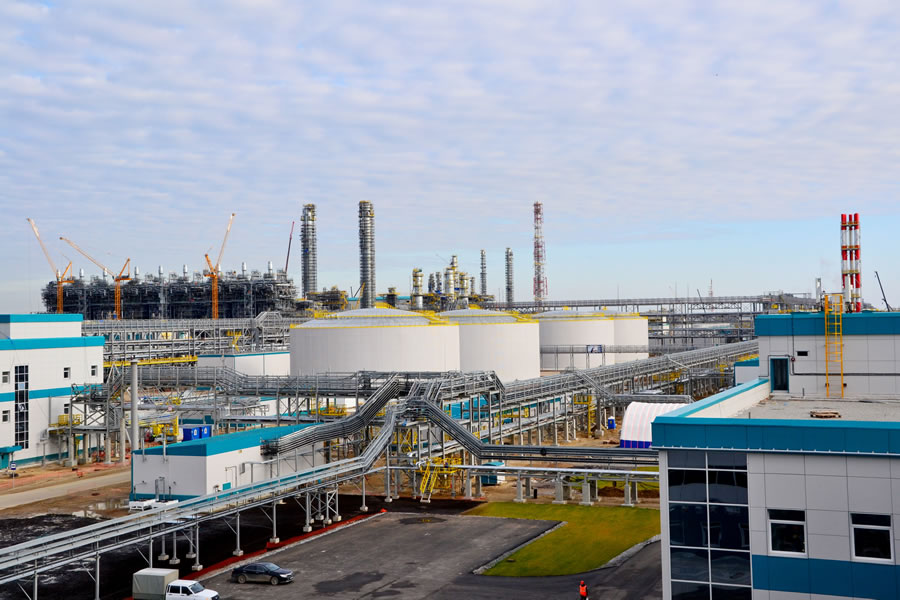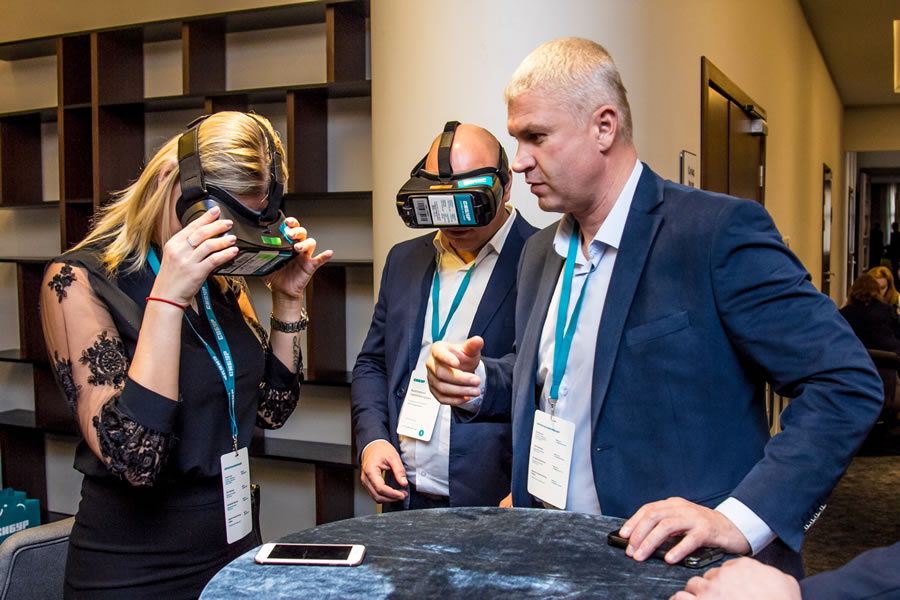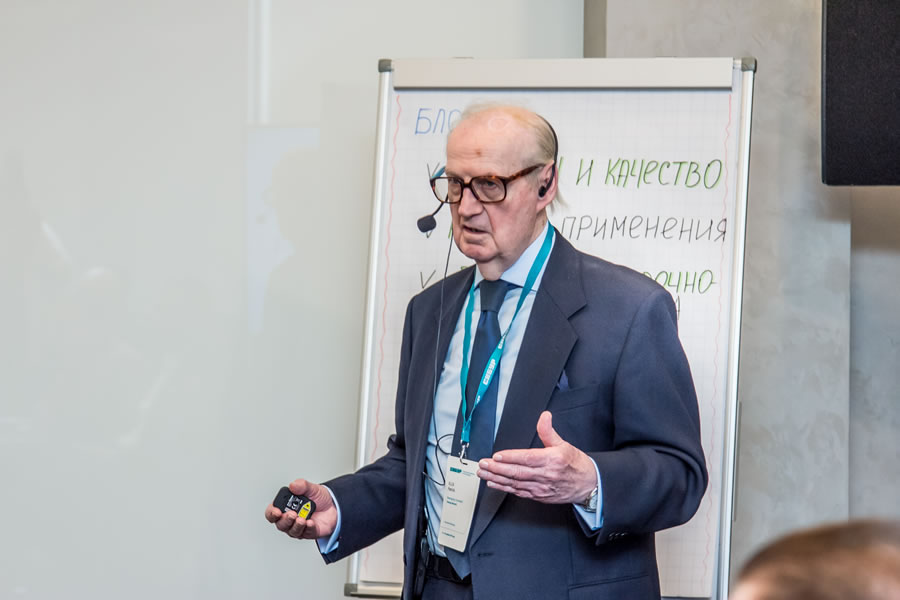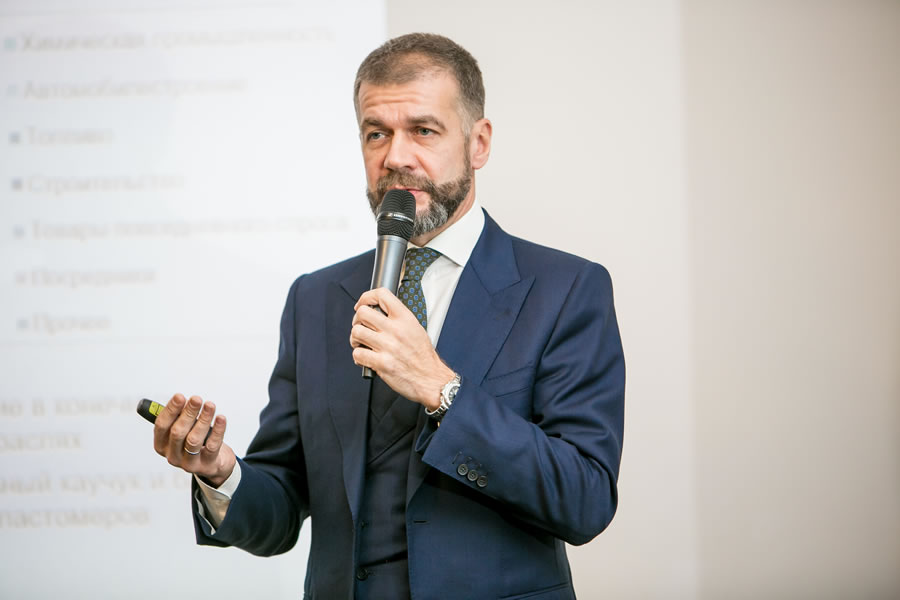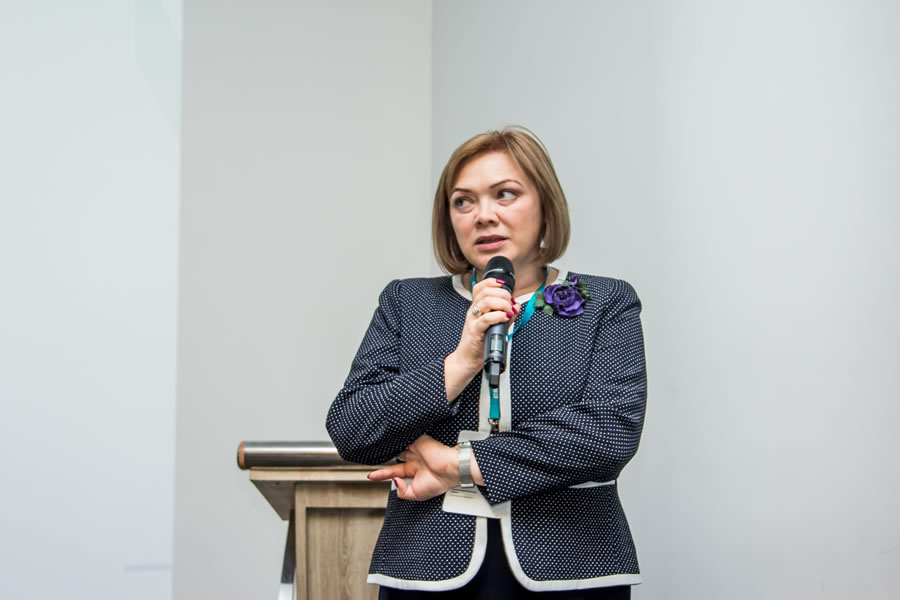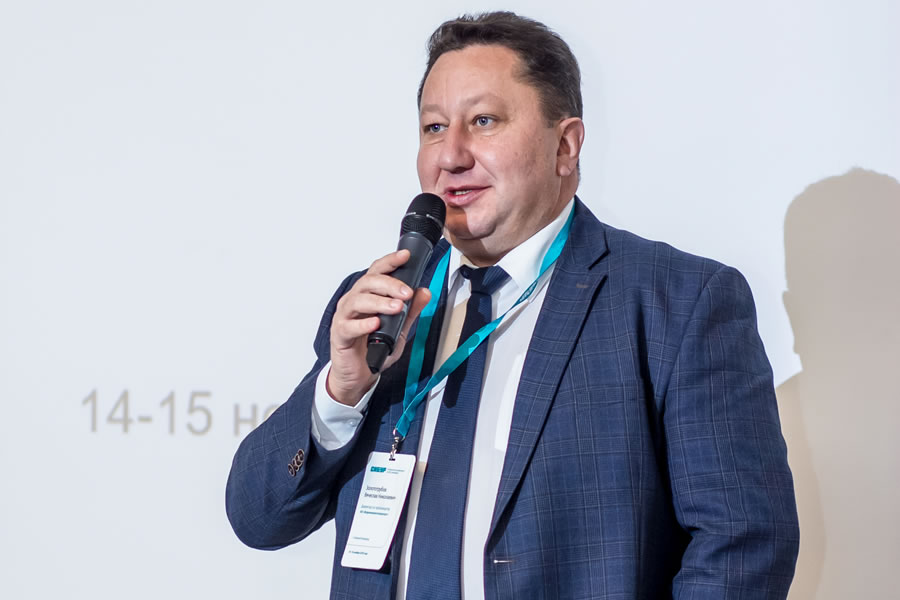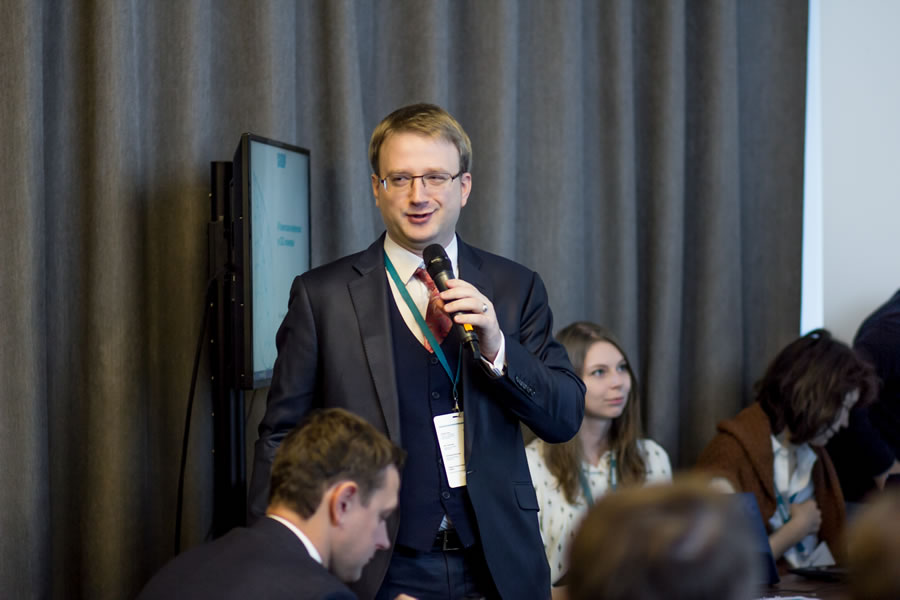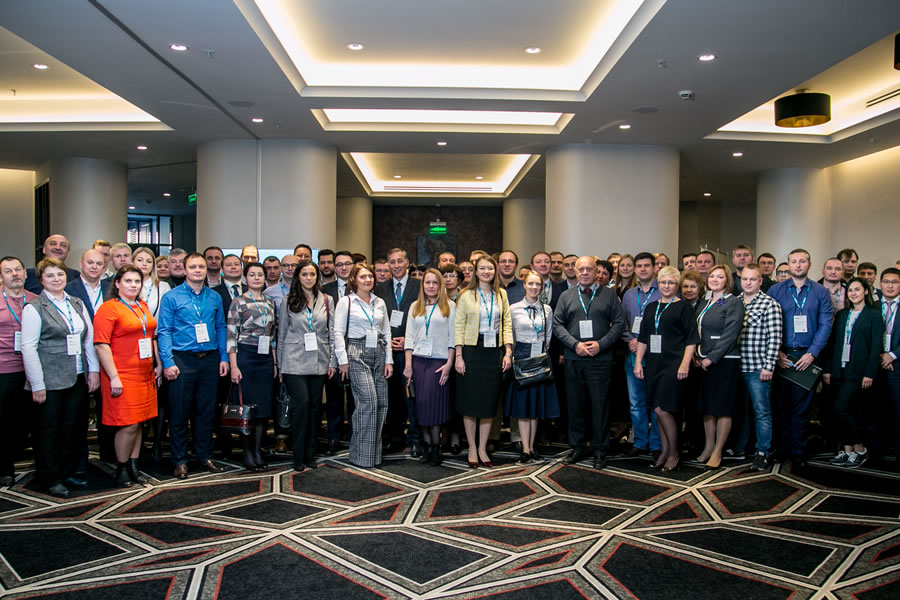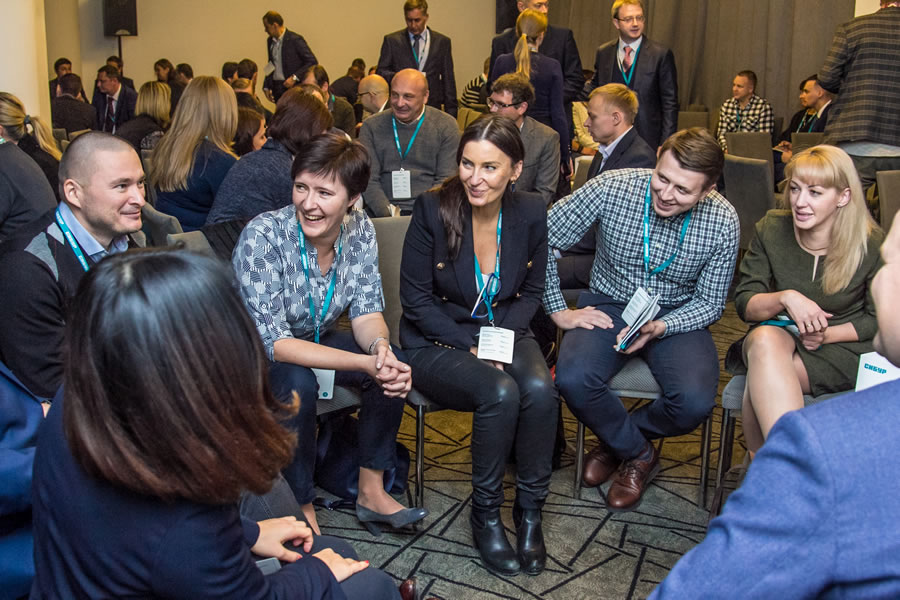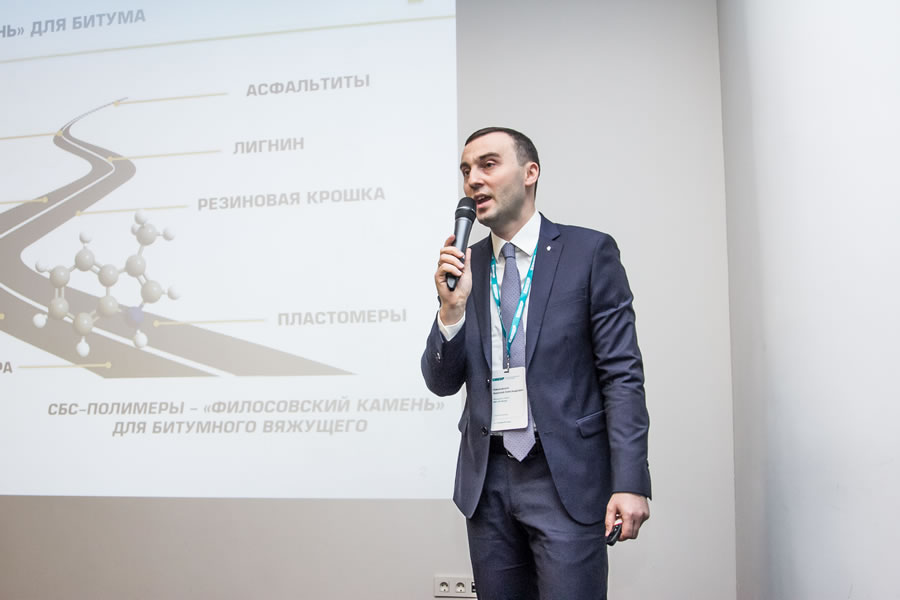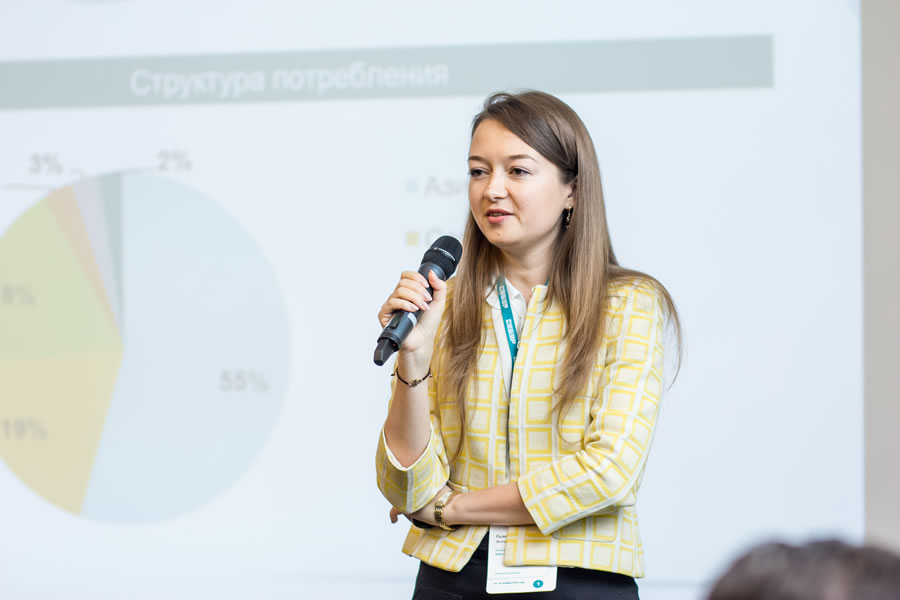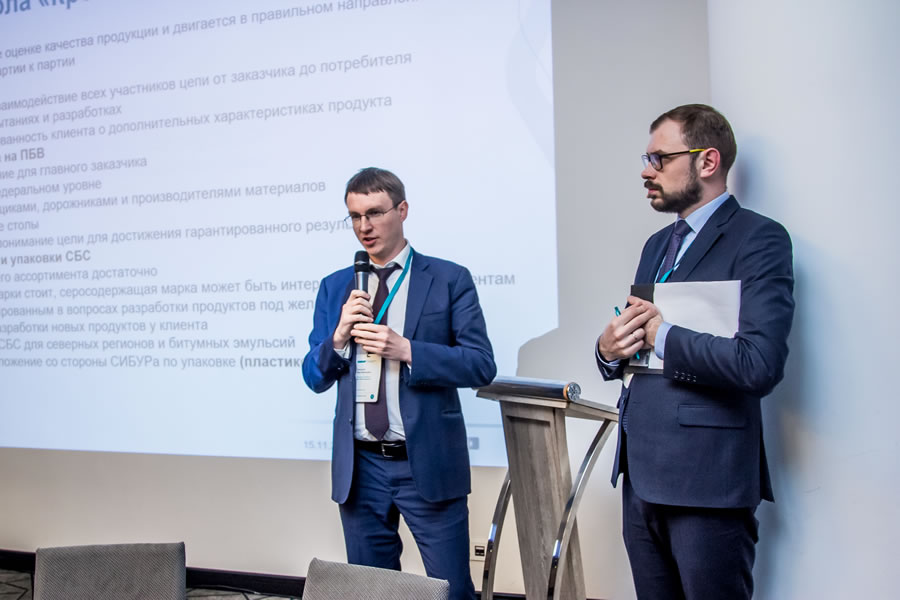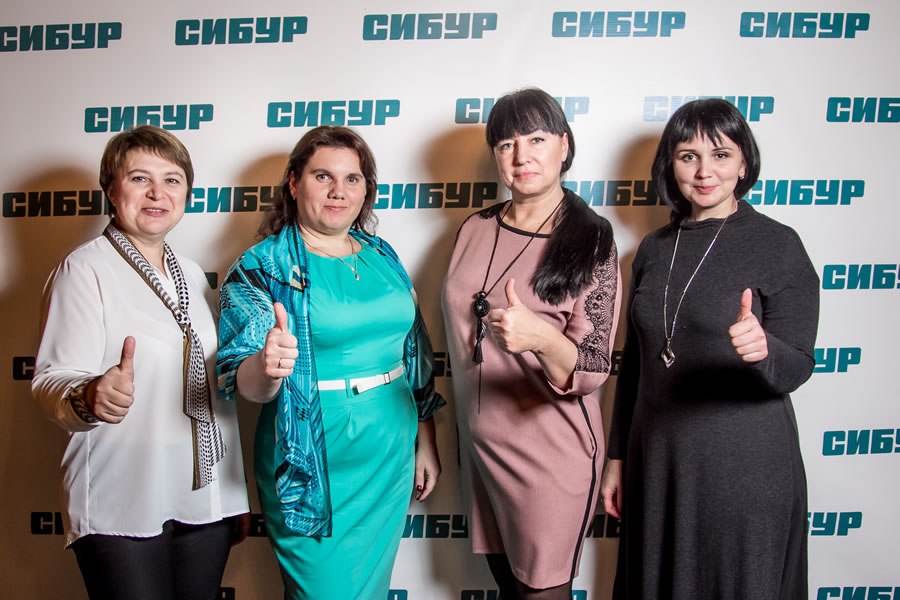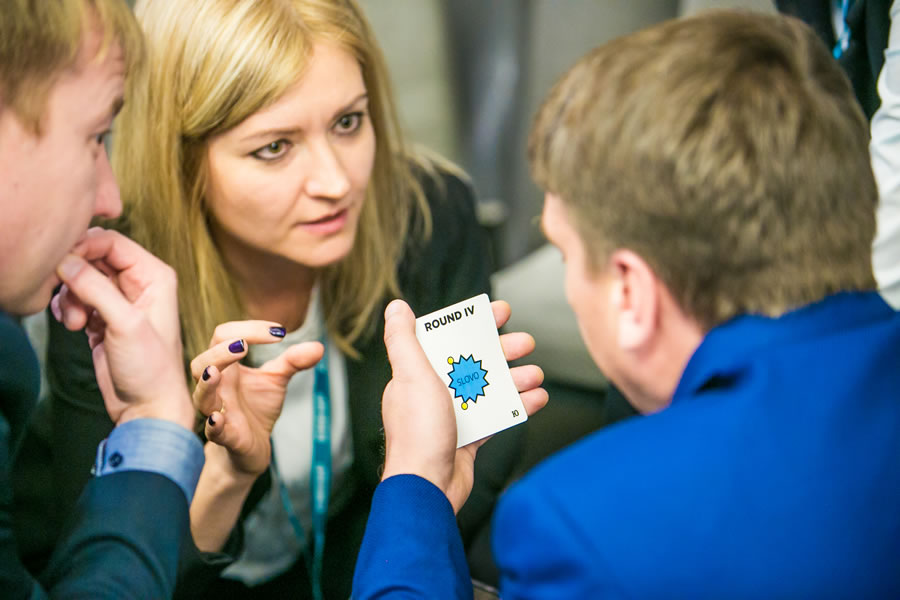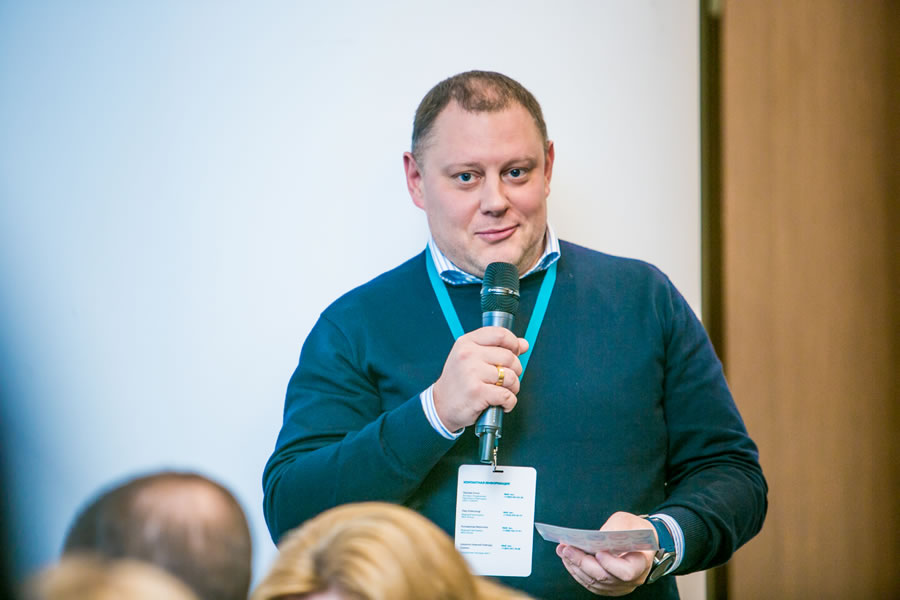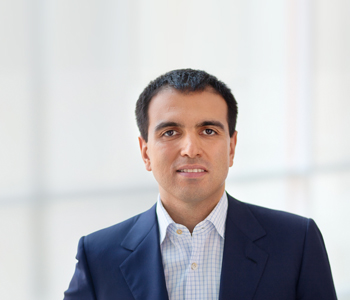Thermoplastic elastomers (TPE) have been in use since 1965 The best known TPE is the SBS type block copolymer.
Arranged by the Plastics, Elastomers and Organic Synthesis Division, the traditional event attracted more than 90 representatives of the construction, footwear and adhesives industries using styrene-butadiene-styrene (SBS) grades produced at one of the Group’s facilities in Voronezh.
The trends of the petrochemical and processing industry, SIBUR’s development and the new value proposition opportunities for SBS consumers became the underlying theme of the conference.
Pavel Lyakhovich, member of the Management Board and Managing Director at SIBUR, spoke about the key trends in the company’s development. He elaborated on the investment projects currently run by SIBUR, accentuating the additional opportunities arising in the SBS and plastics segments. Particularly, ZapSibNeftekhim, Russia’s largest and one of the world’s leading projects, to be completed next year, will not only significantly boost monomer and polymer production, but also provide additional butadiene feedstock for SBS and rubbers facilities.
“This will allow the TPE-50 facility built in Voronezh in 2013 to expand its capacity and double the SBS production volume to 100 ktpa,” the executive explained. “Respectively, consumers of our products can create their investment plans and make suggestions on the offered grades for us to be moving in the same direction.”
ZapSibNeftekhim is estimated to create 10,000 jobs in associated industries.
In SBS, polystyrene and polybutadiene are chemically bound together, helping to avoid the separation of incompatible substances into individual homopolymers.
According to Pavel Lyakhovich, ZapSibNeftekhim is generally estimated to create 10,000 jobs in the associated industries, mainly at facilities that process feedstock produced by SIBUR. Thus, the SBS polymer processors will additionally produce up to 150 ktpa of goods and products. In conclusion, Pavel Lyakhovich called for actively sharing opinions and ideas between the participants. “A presentation is a good format but there is nothing like real-life communication,” he stated.
The discussion that followed was centred around the future. Daniil Yevtushenko, developer of Industry 4.0 at SIBUR, and the renowned futurologist Danila Medvedev, who designed many projects set to bring vision of the future to life in various manufacturing industries, set the tone. Experts from the Elastomers R&D Centre and the Voronezhsintezkauchuk production team, along with their colleagues from the Corporate Centre, took an active part in the discussions.
On both days, the conference focused on the two themes, “Bitumens” and “Compounds and Glues”, and included educational sessions for consumers and round tables where important elements of the value proposition were discussed, such as Methods and Quality, Creating Deferred Demand for Polymer-Bitumen Binders (PBBs), Developing Grade Offering and Packaging, New Applications, etc.
The discussion that followed was centred around the future.
Compared to other materials in the compounding segment, TPE benefits from the combined properties of vulcanised rubbers during operation and thermoplastics during processing.
The speeches also spotlighted tendencies and requirements for glues in the hygiene products market; the impact of the SBS structural parameters on PBB properties; selecting solvents in SBS-based glues; PBB in road construction, etc. The speakers were not only third-party experts, but also SBS consumers, such as Gazpromneft–Bitumen Materials, Rosneft Bitumen, and clients’ own customers, such as the Russian branch of Drylock, specialising on hygiene products. Speeches on molecular composites, thermoplastic elastomers with polar and non-polar components, as well as on 3D printing and shape memory in SBS polymers reflected the participants’ interest in Industry 4.0.
The representatives of the Project Office and production teams updated the participants on the status of Project No. 1 for Voronezhsintezkauchuk related to the launch of the new SBS production line in 2020 and spoke about expanding the grade offering for compounds and glues. SIBUR introduced to the consumers proprietary SBS grades, including a special grade with enhanced heat resistance, intended for the production of soft roofing materials and flexible tiles. The company also presented the results of the research done jointly with ROSDORNII on the estimated properties of polymer asphalt concrete that will help build the deferred PBB demand mechanisms along the “customer – engineer – contractor – PBB producer” chain.
Patrick Ellis, Consultant to the Plastics and Rubber Industries, from Patrick Ellis Consultants , one of the most memorable speakers at the conference.
High working temperature range and decent operating properties, combined with excellent processability make TPE the most popular copolymer for the bitumen and solution-based compounds modification.
Foreign experience was shared along with the domestic one. A BASF representative spoke about the new generations of stabilisers for SBS and compounds and the active cooperation between BASF's and SIBUR's R&D teams looking for the best solutions to satisfy the compounds segment requirements.
The audience welcomed the stories of using polymer-modified asphalt mixtures in Sweden, advanced analysis methods of materials and calculations of the pavement structure presented by KTH Royal Institute of Technology.
Despite his age of 80+, Patrick Ellis, the renowned expert in elastomers from the UK and a Consultant to the Plastics and Rubber Industries, particularly such companies as Shell and now SIBUR, was one of the most interesting speakers about the properties and new applications for SBS-type thermoplastic elastomers.
“The SBS polymers do not just have the right consumer characteristics, they are economically efficient, as the their production cost is lower than that of the competing materials. Thus, they are not just the materials of today, they are the materials of tomorrow,” Patrick concluded.
Pavel Lyakhovich,
member of the Management Board and Managing Director at SIBUR, said:
“The company has practical experience in establishing a particular ecosystem and helping develop business around our production facilities. Consider this case from Nizhny Novgorod: we acquired a facility producing acrylates, it was unstable and supplied a mere 8,000 t of butyl acrylate to the domestic market. The rest of the products were exported. We upgraded the production facility to stabilise its operation, and it currently produces a new grade of heavy ester, and nearly all the output of 40,000 t is distributed among domestic consumers. That means we have developed a domestic market of butyl acrylate processors, primarily manufacturers of dispersion products, paints and varnishes, complex glues used for various purposes.”
Tatiana Gershfus,
Head of Sales at SIBUR:
“As the business customer of this event, we sought to obtain a detailed and open feedback on our collaboration this year and to correlate it with the initiatives that we consistently run as part of the company’s major business programmes. These include the project to eliminate SBS quality deficiencies, the activities under the company’s long-term goals, as well as individual client-focused programmes. The fact that the conference participants were genuinely impressed by the company's growth rate and our client-oriented approach indicates that we are on the right track. Hopefully, at the next year’s conference we can demonstrate new achievements, including the implementation of some of those ideas and proposals that we undertook to focus on this year.”
Vyacheslav Zolototrubov,
Production Director at Voronezhsintezkauchuk:
“At the conference, we had detailed conversations with representatives of our partner companies and consumers of our products, focusing on required volumes, grades, and joint development projects. These conversations are very helpful, as we need to understand what we are doing right today, what can be improved, and in what direction we should be moving tomorrow. I was happy that there were no complaints about the quality of our products, which is a good indicator that our focus on this aspect has paid off. This makes me hope that this year’s conference will further strengthen our partnership and enhance the effectiveness of our cooperation by taking into account the needs and expectations of our consumers.”
Vyacheslav Evtushenko,
Senior Product Development and Technical Support at SIBUR:
“In preparing the conference, SIBUR’s teams in Moscow, Voronezh and Nizhny Novgorod made every effort to create a conducive environment for participants to openly share their ideas, impressions, and joint development plans with us and with each other. We need not only to promote our new grades and innovative solutions to various industries, but also to actively develop new areas of application and cross-industry cooperation. A broad-based group of experts engaged in this dialogue at all stages of processing (from dedicated research institutes to processing sector specialists), including process engineers, businessmen, and development specialists, helps to better focus our joint expertise and efforts to deliver on our targets and initiate new projects.”
Participants of SIBUR’s 4th customer conference on SBS polymers.
Download PDF

